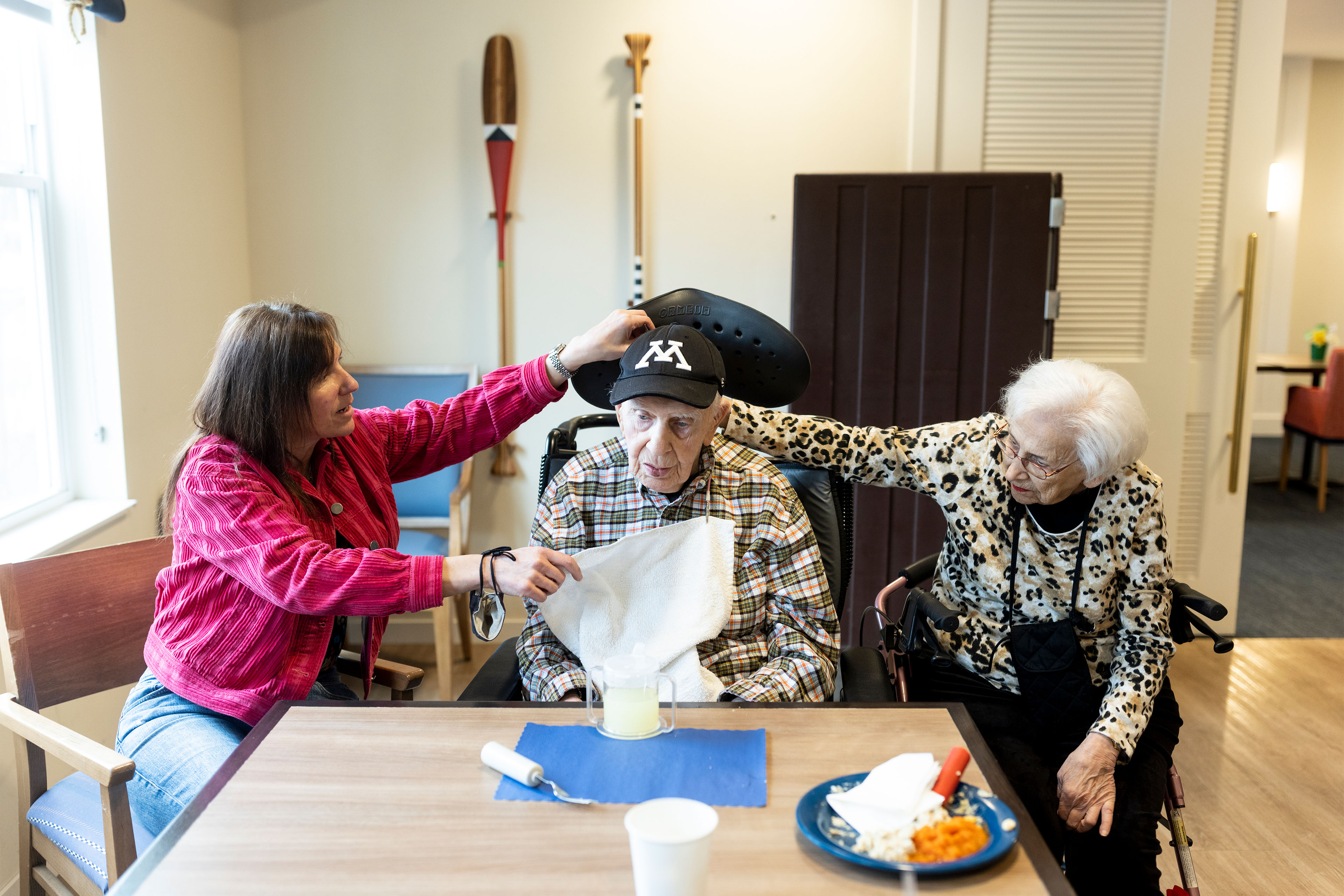Enjoy a protected and active environment in an Assisted Living facility.
Enjoy a protected and active environment in an Assisted Living facility.
Blog Article
The Duty of Assisted Living in Giving Specialized Care for Dementia Clients
The provision of specialized care for mental deterioration individuals within assisted living centers is significantly acknowledged as a crucial component of effective mental deterioration administration. These settings are created to attend to the distinct cognitive and psychological obstacles dealt with by people with mental deterioration, supplying customized support that advertises security and well-being.
Recognizing Dementia Treatment Needs
Recognizing the care demands of people with dementia is critical for giving reliable support and enhancing their lifestyle. Dementia is a dynamic neurological condition that influences cognitive functions such as memory, reasoning, and interaction. As a result, people with mental deterioration typically call for help with daily activities, individualized care strategies, and emotional support.
Efficient mental deterioration care includes identifying the distinct challenges dealt with by each person. This includes comprehending the phases of mental deterioration, which can range from mild cognitive disability to innovative phases requiring detailed aid. Care needs may incorporate support in handling everyday regimens, drug adherence, and maintaining social interactions to avoid isolation.
In addition, sensory stimulation and acquainted environments can substantially boost the health of people with dementia. Caregivers need to be educated to recognize behavior adjustments and employ techniques tailored to every individual's choices and previous experiences. Strategies such as recognition treatment and memory can aid connect efficiently and promote a complacency.
Inevitably, efficiently resolving the treatment demands of people with mental deterioration calls for a thoughtful strategy, recurring training for caretakers, and a commitment to maintaining dignity and respect throughout the caregiving process.
Advantages of Assisted Living

Assisted living advertises social interaction amongst locals, cultivating a feeling of neighborhood and belonging. Involving with peers can minimize sensations of seclusion, which are common in those living with dementia.
On top of that, many assisted living centers supply support with everyday tasks, such as drug monitoring, showering, and dish prep work. This assistance permits homeowners to keep their independence while ensuring their health and well-being are prioritized. Ultimately, assisted living acts as a beneficial source, stabilizing treatment and freedom for individuals with dementia and their households.

Specialized Programs and Tasks
(Assisted Living Charlotte)Recognizing the unique needs of individuals with dementia, lots of assisted living centers apply customized programs and tasks made to boost cognitive feature and advertise general well-being. These programs typically include cognitive stimulation activities that involve homeowners in memory video games, challenges, and reminiscence therapy, which motivates the sharing of personal stories and previous experiences.
In addition, art and music therapy play substantial roles in promoting imagination and psychological expression (Memory Care). Engaging homeowners in painting, crafting, or songs sessions can give restorative benefits, helping to minimize anxiety and boost mood. Exercises, such as mild exercises and dancing sessions, are also essential, as they advertise movement and physical wellness while motivating social communication among citizens
Organized daily regimens are frequently developed to supply a sense of security and predictability for individuals with mental deterioration. These regimens can consist of scheduled meal times, team why not try this out activities, and customized treatment plans that accommodate individual rate of interests and capacities. By creating an improving environment loaded with customized activities, helped living centers not just improve the high quality of life for mental deterioration clients however also promote a feeling of community and belonging.
Trained Team and Support
(Memory Care Charlotte)In assisted living centers, the existence of trained team is vital for offering reliable support to people with mental deterioration. These specialists possess specialized knowledge and skills to address the special needs of citizens, ensuring their security, comfort, and health. Personnel receive training in mental deterioration treatment, that includes understanding the progression of the condition, acknowledging behavior adjustments, and utilizing reliable communication techniques.
In addition, qualified personnel are equipped to execute personalized care strategies customized to each local's choices and capacities. This individualized technique cultivates a sense of autonomy and self-respect, permitting locals to participate in purposeful tasks that enhance their lifestyle. The personnel likewise play a crucial function in checking health and wellness, quickly identifying any kind of changes in condition that may require clinical attention.
In addition to direct care, qualified personnel supply psychological assistance to citizens, aiding to minimize feelings of confusion and stress and anxiety that typically go along with mental deterioration. Their caring technique produces a nurturing environment where citizens really feel valued and understood - Assisted Living. Ultimately, the know-how and devotion of skilled personnel are vital in supplying extensive care that satisfies the complex needs of people coping with dementia in assisted living settings
Family Participation and Resources
Family involvement plays a significant duty in the treatment of individuals with mental deterioration in assisted living centers. Engaging relative in the care process not only boosts the emotional wellness of the resident but additionally promotes a collaborative setting where care strategies can be customized to specific needs. Family members can give useful insights right into the preferences, background, and behaviors of their enjoyed ones, which can notify caregivers and bring about more personalized treatment methods.
Moreover, helped living facilities usually use resources for households, such as assistance teams and educational workshops. These sources can help households recognize dementia, boost communication strategies, and create coping mechanisms. Involvement in these programs can encourage family participants, outfitting them with the tools needed to sustain their loved ones properly.
Furthermore, normal communication between family members and team is important. This recurring discussion allows households to remain informed regarding their liked one's progression and any modifications in treatment strategies. Inevitably, a strong partnership between families and helped living centers cultivates an environment of count on and understanding, making sure that people with mental deterioration receive the specialized care they are worthy of while maintaining their family members connections.
Conclusion
Finally, helped living centers play a crucial duty in resolving the unique needs of dementia patients via personalized care and support. By cultivating secure settings, promoting social interaction, and applying structured routines, these centers enhance the total health of citizens. The involvement of trained staff and family members additionally improves the treatment experience, guaranteeing that private choices and histories are respected. Ultimately, assisted living gives vital sources that significantly enhance the lifestyle for those coping with dementia.
Report this page